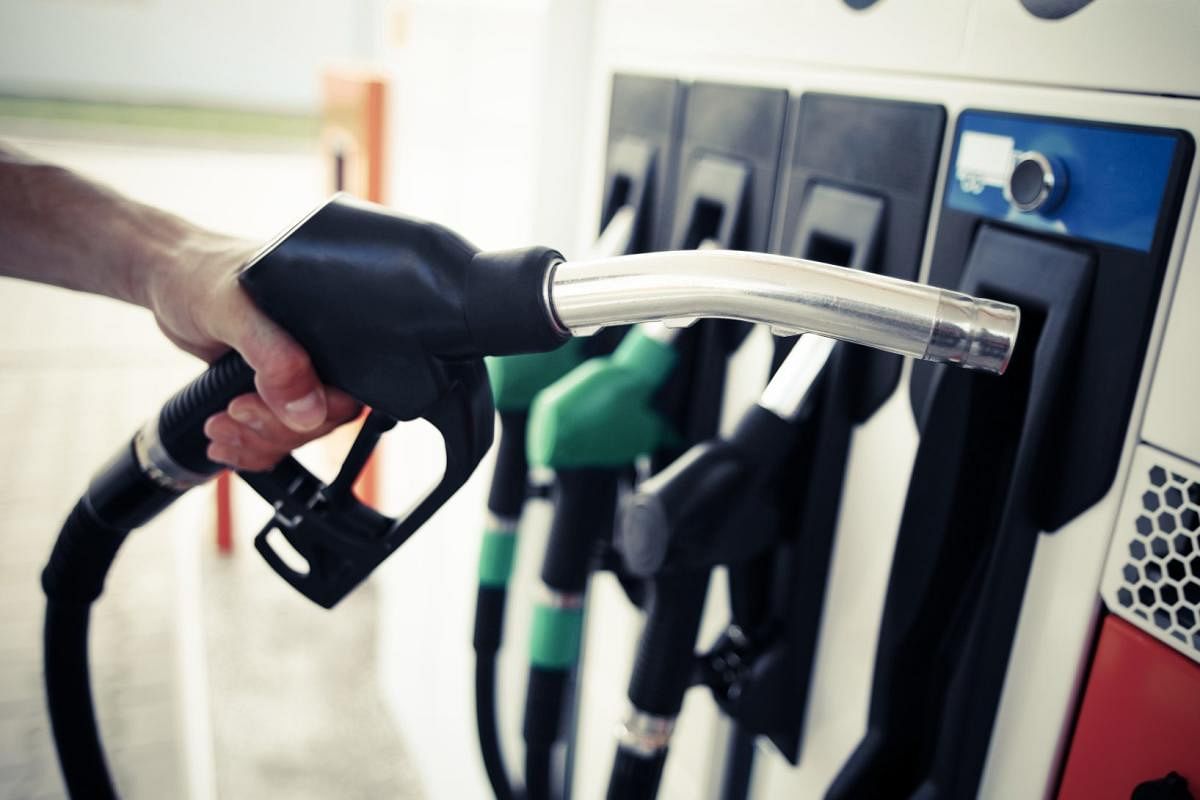The relentless rise in retail fuel prices have hit the consumers badly, and is straining budgets every day at every level, from the household to the nation. The price of petrol is over Rs 83 in Bengaluru, having risen by Rs 3 in the last few days. Diesel costs about Rs 75. The prices are at their most elevated levels all over the country and are racing to touch still higher levels. The prices are being pushed up by rising crude prices and a falling rupee, but the situation has been made worse by a mechanical implementation of the pricing mechanism and a stubborn insistence by the government to impose high duties on retail fuel prices. Duties and taxes now form more than 50% of the fuel prices.
The government has not shown any inclination to reduce the taxes, despite the steady increase in prices and the persistent demand to reduce them. The central excise duty has been increased by Rs 20 per litre in the four years of the Modi government. The government earned over Rs 2.5 lakh crore in revenue from fuel taxes in 2016-17, whereas it was just Rs 99,000 crore in 2014-15. The government did not reduce the prices even when the international prices had fallen to their lowest levels. When the crude price was about $105 per barrel in 2014, the price of petrol was about Rs 70 and that of diesel about Rs 55. But now, when the crude price is about $75, petrol costs about Rs 83-87 and diesel is sold in the Rs 74-76 range. This is because the excise duty on petrol has been hiked by over 200% and that on diesel by over 400%. Duties and taxes have distorted the market pricing policy, which was intended to pass on price benefits to the consumer. State governments have also refused to cut their share of taxes because it is an easy source of revenue. Among neighbouring countries, fuel prices are the highest in India.
Opposition parties and trade unions have called a Bharat bandh on Monday to protest the rise in fuel prices. The BJP has blamed the UPA government for the price rise, claiming that the Modi government is only following the UPA’s pricing policy. This is wrong, because the pricing policy does not prevent a reduction in duties and taxes, but a government that has otherwise failed to manage the economy better has become reliant on this source of revenue. The high fuel prices are not only making life difficult now but will make it worse in the coming months because they will fuel inflation. The Centre should cut the taxes and the states should follow, to bring fuel prices down.
